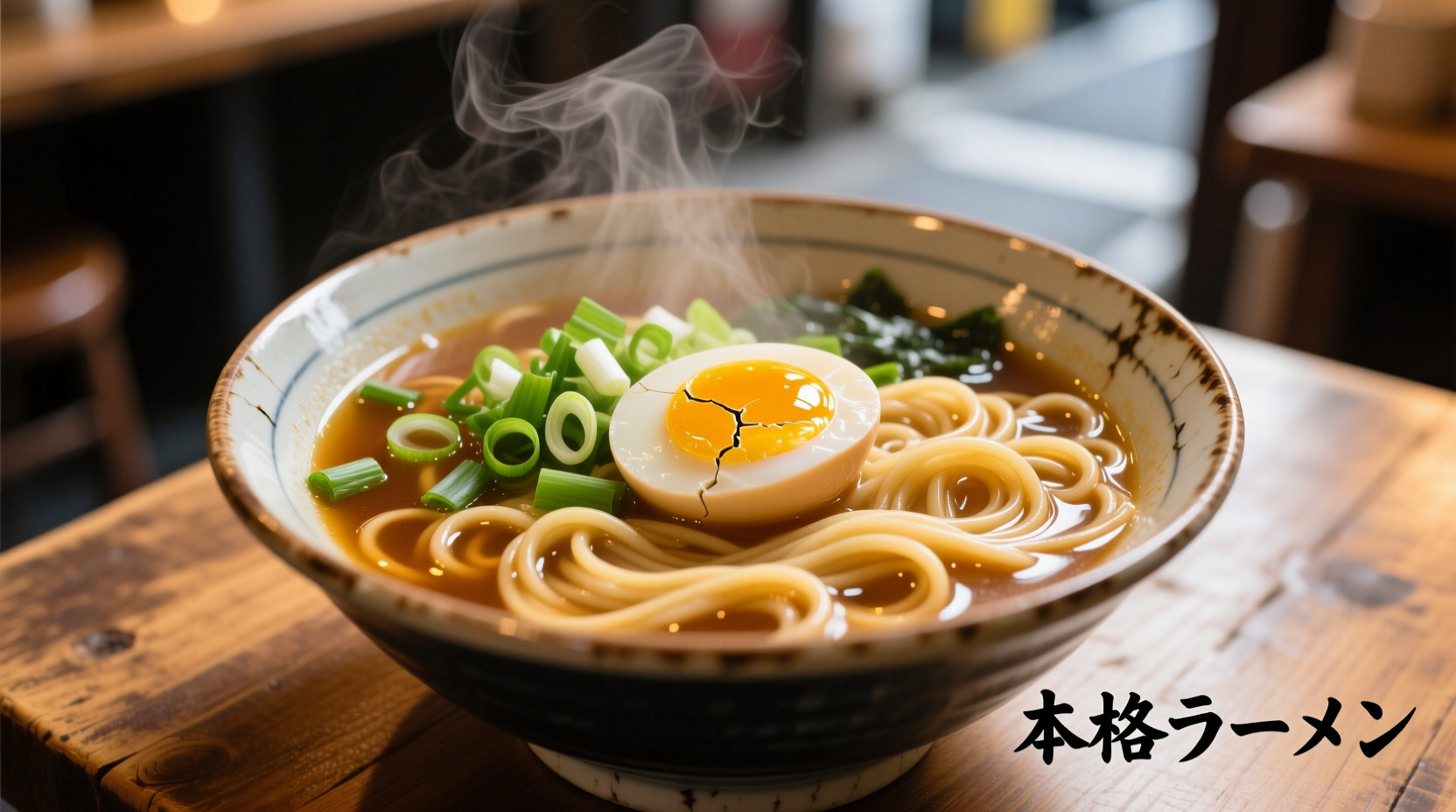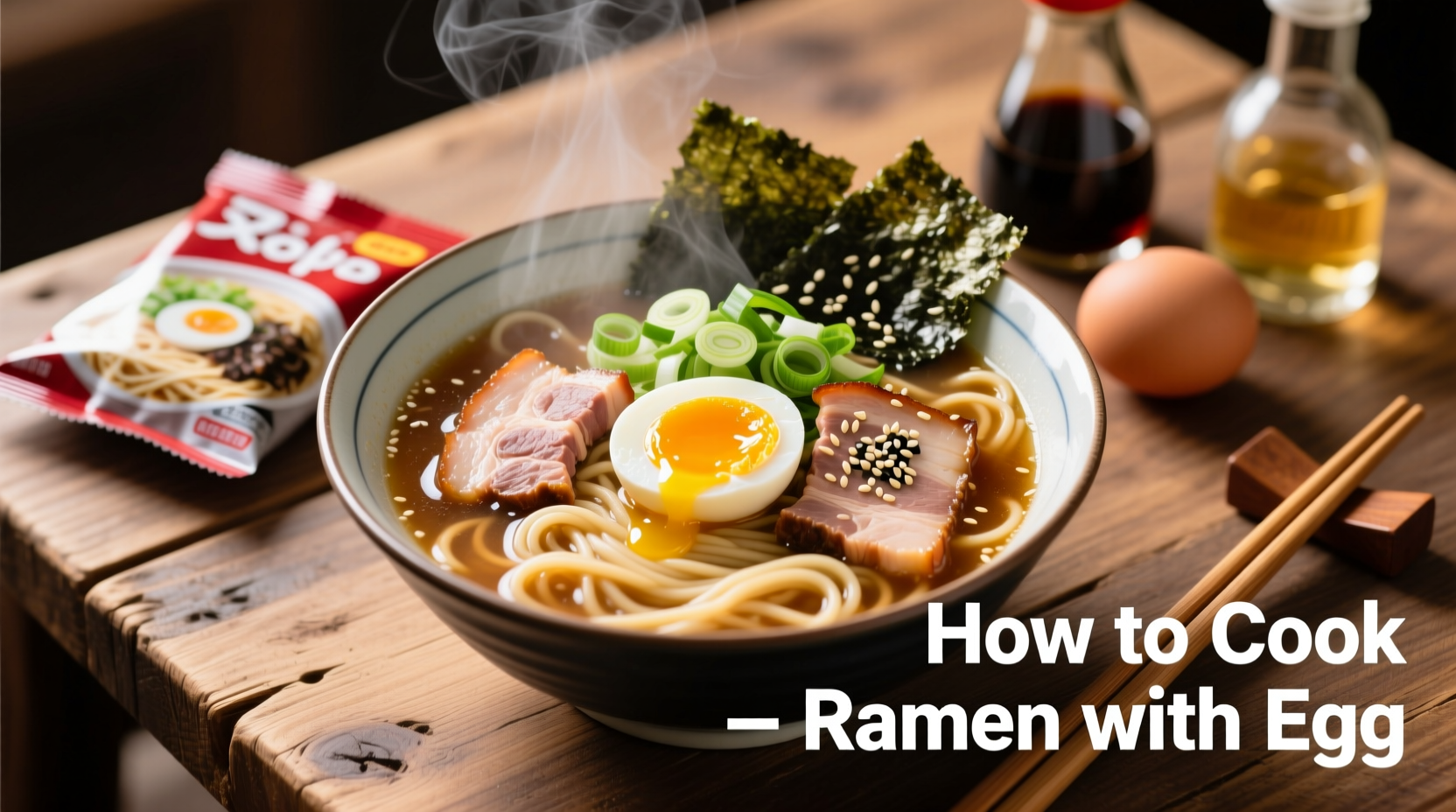Want restaurant-quality ramen with egg in under 15 minutes using just one pot? This guide reveals the exact technique professional chefs use to transform basic instant ramen into a satisfying meal with perfectly cooked eggs every time. No special equipment needed—just your standard kitchen tools and common pantry items.
Essential Ingredients for Perfect Ramen with Egg
You'll need just 6 simple ingredients to make delicious ramen with egg:
- 1 pack instant ramen (discard flavor packet or use half)
- 2 cups water or broth (chicken or vegetable)
- 1-2 large eggs (fresh, room temperature)
- 1 teaspoon soy sauce (for egg marinade)
- 1 teaspoon mirin or rice vinegar
- Slice of green onion for garnish
Step-by-Step Cooking Process
Preparing Your Egg First (6-7 Minute Method)
Cooking the egg while your water heats saves crucial time. Place eggs in cold water, bring to gentle boil, then cook for precise times:
- 6 minutes: Runny yolk, custardy white (ideal for dipping)
- 7 minutes: Jammy yolk, fully set white (perfect for ramen)
- 8 minutes: Firm but creamy yolk (best for meal prep)
Immediately transfer to ice water for 2 minutes to stop cooking. Peel carefully under running water.
Cooking Ramen Noodles Properly
Most people overcook ramen noodles. Follow these precise steps:
- Bring 2 cups water or broth to rolling boil
- Add noodles and cook for exactly 2 minutes (not 3 as package says)
- Stir in half the flavor packet or 1 tbsp homemade seasoning
- Remove from heat and let sit 30 seconds (noodles continue cooking)
Marinating Eggs for Next-Level Flavor (Overnight Method)
For restaurant-style ramen eggs (ajitsuke tamago), prepare in advance:
- Soft boil eggs for 7 minutes, cool in ice water
- Peel carefully under cold water
- Create marinade: 1/4 cup soy sauce, 1/4 cup mirin, 2 tbsp sugar, 1/4 cup water
- Submerge peeled eggs in marinade for 4-12 hours
- Refrigerate for up to 5 days
| Egg Preparation Method | Time Required | Yolk Texture | Best For |
|---|---|---|---|
| 6-Minute Boil | 10 minutes | Very runny | Dipping, immediate serving |
| 7-Minute Boil | 12 minutes | Thick runny | Classic ramen bowl |
| Marinated (4+ hours) | 4+ hours | Creamy | Restaurant-style presentation |
| Poached | 8 minutes | Runny center | Lighter broth options |
Ramen Evolution Timeline: From Chinese Noodles to Global Phenomenon
Ramen's journey reflects cultural adaptation. According to the National Museum of Japanese History, what we know as ramen today evolved through distinct phases:
- 1859: First Chinese noodle shops appear in Yokohama after Japan opened trade ports
- Early 1900s: "Shina soba" (Chinese noodles) become street food in Tokyo
- Post-WWII: Wheat shortages lead to instant noodle invention by Momofuku Ando (1958)
- 1970s-80s: Regional styles develop (tonkotsu, shoyu, miso)
- 2000s-Present: Global ramen boom with specialty shops worldwide

Common Mistakes That Ruin Ramen with Egg
Avoid these pitfalls that even experienced cooks make:
- Overcooking noodles - They become mushy in broth (stick to 2 minutes)
- Adding egg to boiling broth - Causes yolk to overcook (add after removing from heat)
- Using cold eggs - Increases cracking risk (always use room temperature)
- Skipping ice bath - Eggs continue cooking and become rubbery
Pro Tips for Restaurant-Quality Results
These chef-tested techniques elevate basic ramen:
- Add egg during the 30-second noodle resting period for perfect temperature
- Use dashi broth instead of water for authentic umami depth
- Make a well in noodles before adding egg to contain runny yolk
- Sprinkle with sesame seeds and nori for professional presentation
- Keep broth temperature at 180°F (82°C) when adding egg to prevent overcooking
When to Choose Different Egg Methods
Understanding context boundaries ensures perfect results:
- Quick lunch: 7-minute boil method (ready in 15 minutes)
- Meal prep: Marinated eggs (cook once, use all week)
- Lighter meal: Poached egg (adds richness without heaviness)
- Cold ramen: Fully set hard-boiled egg (holds shape better)
Troubleshooting Common Issues
Solve these frequent problems with scientific precision:
- Egg won't peel: Add 1/2 tsp baking soda to boiling water (raises pH, loosens membrane)
- Yolk off-center: Store eggs pointy-end down before boiling (centers yolk)
- Cracked shells: Add vinegar to water (helps coagulate proteins if crack occurs)
- Over-marinated eggs: Limit soy sauce time to 12 hours max (becomes too salty)











 浙公网安备
33010002000092号
浙公网安备
33010002000092号 浙B2-20120091-4
浙B2-20120091-4